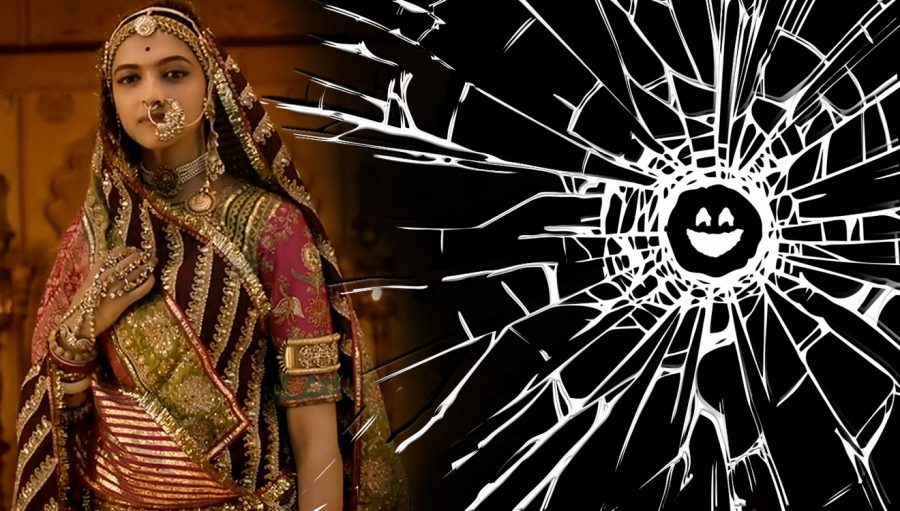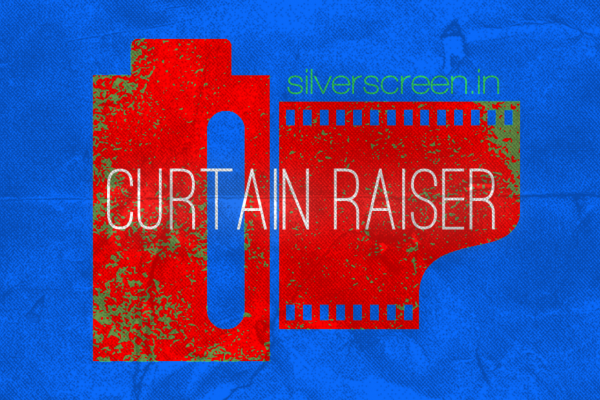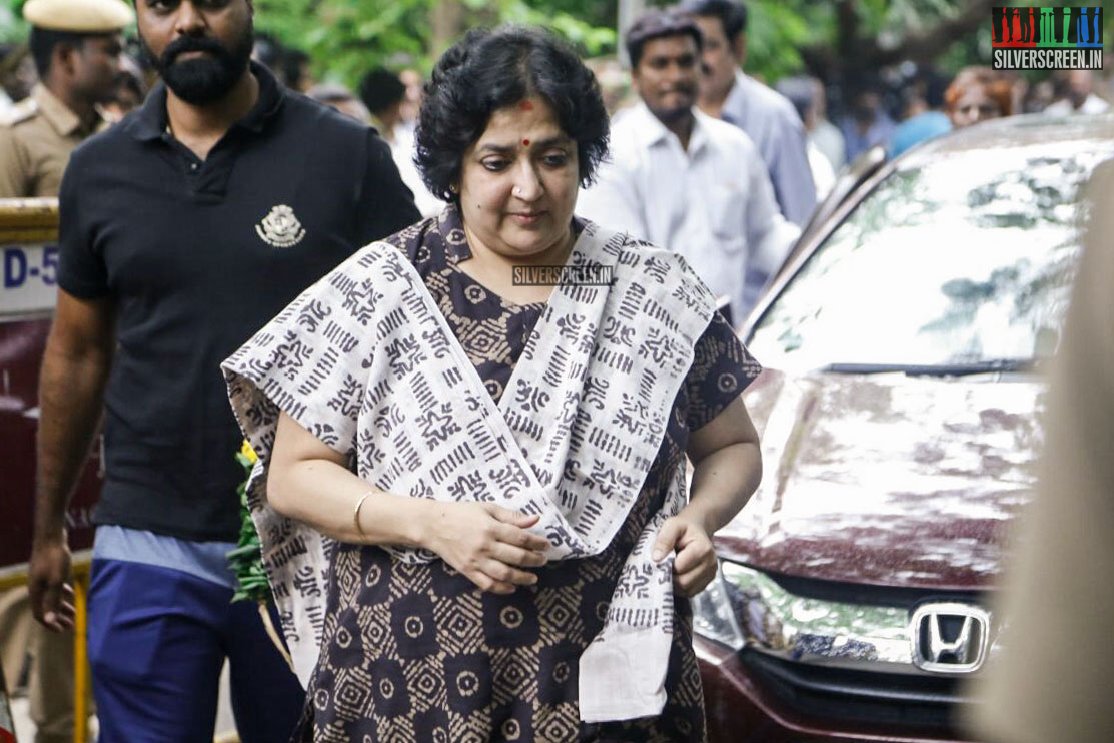The violent threats, the vehement controlling of freedom of expression, and the categorical statements or lack of it from higher authorities — #PadmavatiRow will soon go down in history as a politically charged episode for a movie that draws inspiration from what is widely regarded as a fictional story.
Blatant death threats and bounties are coming from groups who call themselves the upholders of righteousness and all things Hindu in the country.
If last week was all about Karni Sena threatening Deepika Padukone with a similar fate to that of Surpanakha in the Ramayana, this week began with bounties worth crores for beheading the actress, and the filmmaker, Sanjay Leela Bhansali.
Want to congratulate Meerut youth for announcing Rs 5 crore bounty for beheading Deepika, Bhansali. We will reward the ones beheading them, with Rs 10 crore, and also take care of their family’s needs: Suraj Pal Amu, Haryana’s BJP Chief Media Coordinator pic.twitter.com/IKPL9Di5Fm
— ANI (@ANI) November 19, 2017
Agar tune apne shabd wapas nahin liye to teri taango ko todke tere haath mein de denge: Suraj Pal Amu, Haryana’s BJP Chief Media Coordinator on Ranveer Singh #Padmavati pic.twitter.com/mMON1Kk38x
— ANI (@ANI) November 19, 2017
Unsurprisingly, the makers announced yesterday that they are, in fact, deferring the film’s release. Needless to say, the most hated man and woman in the country right now are Bhansali and Padukone. All for a movie about a fictional princess who is known for defending her honour from an allegedly brutal man.
Aaj Deepika Padukone kis haisiyat se hamein challenge karti hai ki film lagke rahegi. Kya naak nahi kaat di usne Sanjay Leela Bhansali ki? Saikdon-crore rupaye jo khair uske nahi the, middle-east se aaye the, Dawood ke aaye the: Karni Sena chief Lokendra Singh Kalvi #Padmavati pic.twitter.com/LJbD1gtS31
— ANI (@ANI) November 19, 2017
What is making things worse is social media; users subscribing to the same beliefs are having a field day on this.
Once hired by Mallyas, @deepikapadukone is progressive and we as a nation regressive.
Why not have a film with title “Deepika aur Sid ka chumma”#Padmavati pic.twitter.com/gCs196JWMY
— #GauravPradhan ?? (@DrGPradhan) November 18, 2017
While the film fraternity and a few politicians from the Opposition have condemned the violence and called for a peaceful release of the film, what’s troubling is that the hashtag #BanPadmavatiMovie has been trending on a daily basis ever since demands of the right-wing fringe groups snowballed into a major controversy.
one more!! theatre par tod phod #karnisena jindabad ??
must watch….!
#OnePlus5TLaunch #YouthWithBJP #fringeattacksdeepika
chirag patel
lakshyaraj singh mewar
Greater noida
NEWS ALERT#Padmavati #BanPadmavati #BanPadmavatiMovie pic.twitter.com/A1ADjTo5y5— Kshatriya RAJPUTS (@Royal_rajputs) November 16, 2017
#BanPadmavatiMovie
It’s test for Govt to protect national pride & frame law to prevent distortion of history & Culture by BollyDawood. why only with Hindus?— Prashant P. Umrao (@ippatel) November 17, 2017
I want ban on #Padmavati as the scene of Khilji eating meat Bhansali has not put a disclaimer abt it not being Beef. #BanPadmavatiMovie
— Midhat Kidwai (@midhatkidwai) November 18, 2017
*****
The idea of vilifying and persecuting people on social media, where it goes beyond ‘just a clash of opinion’, seems frighteningly familiar.
Black Mirror, a science fiction anthology series, available on Netflix, contains episodes that are haunting – exploring the impact of social media, and those who are ardent followers of the platform.
Episode six of season three, ‘Hated in the Nation’, is of particular relevance to the Padmavati issue. The episode opens to a writer, Jo Powers, who criticises a disabled activist’s self-immolation in her op-ed titled ‘Spare me the tears over this “martyr”‘. The article does not go down too well among netizens, who criticise her opinions and resort to name-calling. Death threats follow. Soon enough, the hashtag #DeathToJoPowers starts trending.

Via Netflix
Social media users who oppose her thinking employ the hashtag with the sole purpose of slamming her on virtual space. The hashtag is used as though it were for something frivolous, like say, making fun of people who like pineapples in their pizza.
Powers is amused by this attention, unfazed at being the most hated person in the UK. Even the hashtag doesn’t unnerve her.
Until next morning when she’s found dead with her throat slashed. Blood splattered everywhere, her death is celebrated by many and condemned by few. When regular people are asked about their opinion on Powers’ death, most nonchalantly answer – “I know she is dead. But did you read what she had written?”
While Inspector Karen Parke and Blue Coulson investigate her murder, the next person to become the most hated in the nation is rapper Tusk, who insults a young boy’s dancing at a talk show, breaking the boy’s heart. The hashtag surfaces again, many lambasting him for breaking a child’s spirit and dream.
The next day, he, too, dies a gruesome death. While it looks like a natural death, a metallic device is found lodged in the ‘pain area’ of his brain. It is revealed that the software of Autonomous Drone Insects – replacement for bees – is hacked and targets those who emerge as the most hated person in the nation.
More than a sci-fi take on drones and robots, the episode is a commentary on how social media has emerged as a platform conducting kangaroo courts and posing as a weapon to those who dare say anything against the regular. The episode ends with the death of all those who participated in the hashtag game of #DeathTo, exploring the ways in which mob mentality takes precedence over actual empathy and intelligence.
Recommended
Watching Padukone, Bhansali and even actors like Kamal Haasan given death threats sets a dangerous precedence. Of course, we are no way suggesting that the happenings of a dystopian world will turn true. The very thought is ridiculous and scary. The point is, in a democracy, people should not get away by threatening physical violence to artists or anyone. A filmmaker should not feel obliged to postpone a release over unverified claims of fringe groups. An actor should not face death threats for doing her job.
Silence against those who issue threats and call for a ban on artistic depictions paints a more troubling picture. The row over Padmavati began with innocuous opposition, and now there are theatres vandalised, sets burned, and crores of money offered for severed heads. There are countries in the world where merely uttering a word against the system or the majority calls for a death sentence. When issues like economic growth, Human Development Index, safety and security need attention, can a country like ours afford to let hooligans dictate terms over a film that is being made solely for the purpose of entertainment?
*****



